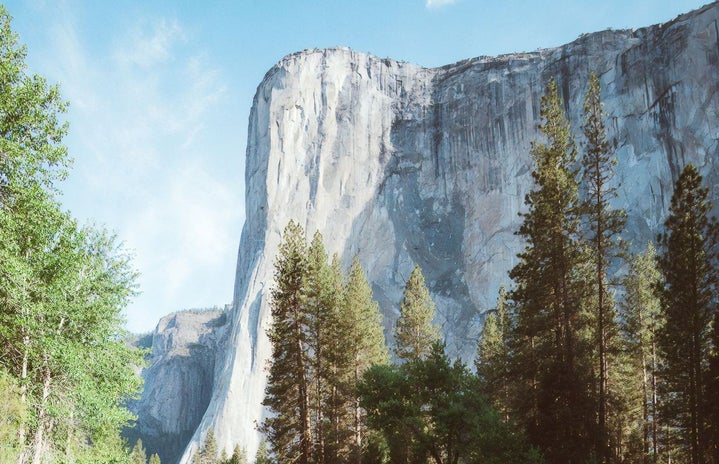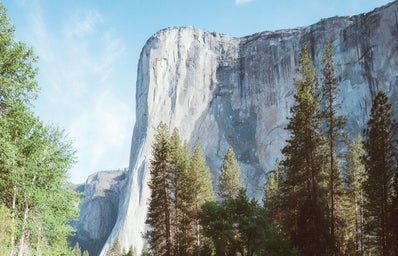Growing up as a young child in an agricultural town, you would think that topics like environmental justice, sustainability practice, eco-friendly urban planning, or basic intel on climate change would have been implemented rather rigorously. Operative word being ‘you would think.’ When I think about it, we never got too much into that aspect of science in school. Granted, we had a brief unit or two on how photosynthesis occurs but beyond that, my knowledge of how important climate change was, wasn’t developed more holistically until I reached college. But by then, truthfully, I wasn’t too interested in expanding upon my academic comprehension of scientific disciplines because although I had done quite well in such courses throughout middle and high school, it just wasn’t something I was passionate about—or deeply invested in at the very least. With that being said, we’ve seen the world go through some major (and alarming) changes in recent years such as the presidential election of Trump, countless police murder conflicts of Black people (keep in mind that of these statistics, countless more never go reported or reach trial), hate crimes incited against the AAPI community, and of course, the global COVID-19 pandemic (that is still ongoing by the way…I shouldn’t have to say it but now that I’ve brought it up, I don’t know why people in America are acting like things are normal and that it’s okay to ignore safety and health precautions…when so many parts of the world are still suffering but I digress). I bring these anecdotes up to say that ultimately, regardless of which civil issue you are invested in, none of it will matter if we continue to idly allow our natural resources and our environmental well-being to deplete. Recently, I stumbled upon this really awesome Teen Vogue article talking about a surge of creativity happening across the climate change movement and came across a game called Survive the Century. So I thought to myself, ‘what better way to cap off my time as a regular contributor than with a riveting review?’ Okay, so maybe I didn’t actually say that. But I do think it’s worth talking about because it’s both informative and entertaining. So without further ado, let’s get right into it!


For the question about our vaccine rollout plan, you can decide between one of four possible choices which include:
-
‘Maybe a rich country could donate some vaccines?’
-
‘Maybe billionaires could donate some vaccines?’
-
‘Let’s agree that each country should donate one percent of its GDP to a global vaccine fund’
-
‘Wake up sheeple! Vaccines are a plot by sinister elites to turn everyone gay!’
Did I mention the game is also hilarious? I anxiously chose the second option because duh (eat the rich!); in my head, it made the most sense because rationally speaking, if we allowed a rich country to donate vaccines, they’d surely put a lot of restrictions on how it could be accessed and who’d be given access or priority to the vaccines once available. The third option also seemed ridiculous to me because I knew every country doesn’t have an equitable percentage of GDP to give so that wouldn’t do much good either. And really? The fourth choice was an obvious joke (but I’m glad they included it so users can choose to be as insidious as they want and see how quickly things would turn for the worse if they continued on the path that we’ve been on in real current events).

For the duration of the game, I was terrified of making the wrong decision and basically killing everyone and it reminded me that these are the sorts of things we ought to be considering, both as a national collective and as a human collective if we want to see justice through. In summary, by the end of the game, I failed our humanity. To be specific, my final screen read, “We avoided some of the worst effects of climate change, but we completely lost any hope for democracy of fairness”. The prompt then goes on to detail what went wrong based on my choices before concluding in another prompt at the end that I’d gotten there because “You allowed capitalists to run rampant and did not ever address inequality”. Honestly, I felt like my entire life was a lie at that point. Critiquing capitalism and fighting against inequality is like…my entire brand! I was shocked to see such results so for good reason, I proceeded with caution onto the next page. By the way, if you decide to try the game for yourself, when you reach the second to last info screen, at the bottom it tells you that you can view the interactive dashboard to see the data collected on your choices in order to figure out which decisions had the biggest impact on your outcome (just wanted to throw that out there in case you miss it).
When you reach the final screen, the game thanks you for playing and reminds players that our choices matter. While these situations are made up, they’re not too far off from reality. We have to be conscious consumers and producers, not ignorant polluters (wow okay bar?!)
What really takes this game to icon status in my opinion is that it provides resources for players to take action so that we can work to prevent our fictional outcomes from becoming reality. Below they provide links to an organization called 305 which works on environmental justice and other climate-related issues; you have the option to input information in order to get involved with local chapters and really just put that first step forward toward impactful change. My favorite part of the prompt concludes with, “Some decisions open up multiple pathways, and some close down our options. Choices create winners and losers. And all choices have consequences.” Now I don’t know what exactly happened in the creator’s room when they wrote that but that’s totally a mic drop moment in my opinion.
So whenever you have some downtime, be sure to give the game a run-through and consider getting involved with an environmental change organization of your choice. In the grand scheme of things, of life, it really is the smallest things that make the biggest impact over time.
A/N: I want to once again clarify that this is the end of my time with the UCR chapter as I’ll be moving onto other academic prospects now that I’m graduating (I’ll be alumni by the time this gets published, awaiting my virtual ceremony). I want to extend the warmest thank you to my fellow members and to the national HERCampus community for giving us the platform to express ourselves. I may be leaving but I’m never really gone and will be around anytime my team needs me. Thank you to everyone who’s ever read any of my articles, it means a lot. This isn’t goodbye, it’s a see you later! Best of luck to all of our incoming members, I’ll catch y’all on the flip side!


